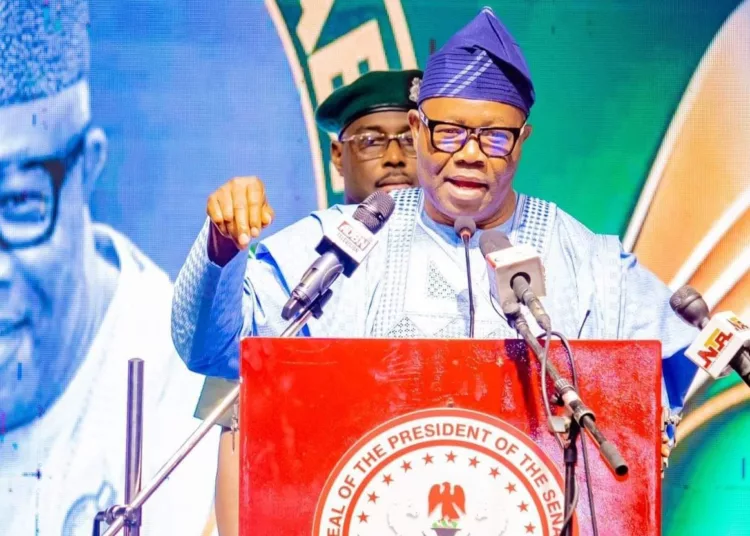The Senate Committee on Constitution Review wrapped up a two-day retreat in Kano on Saturday. The senators agreed to grant full autonomy to local governments as part of proposed amendments to the 1999 constitution. However, they expressed differing opinions regarding the establishment of state police.
During the weekend retreat, organised in partnership with the Policy and Legal Advocacy Centre (PLAC), senators from the Southeast and South-South regions voiced their support for creating additional states.
The push for local government autonomy appears to respond to the recent Supreme Court ruling and Senate President Godswill Akpabio’s commitment to amend the constitution to reinforce this autonomy.
The senators seek to prevent local governance collapse, which state governors’ interference has undermined.
Prominent voices favouring local government autonomy included Senate Leader Opeyemi Bamidele, former Chief Whip Ali Ndume, and Finance Committee Chairman Sani Musa. They argued that local governments should operate independently from state control. Bamidele remarked that the current constitutional framework places local governance under the purview of state governments, a situation that needs urgent correction.
He stated, “The autonomy of our local governments is non-negotiable. We must adapt our constitution to reflect the realities we face today. The Supreme Court has clarified our constitutional position, and we should ensure that governors cannot obstruct local government operations.”
Senator Osita Izunaso countered concerns that local government chairmen could gain excessive power under full autonomy, insisting that historical precedents show local governments can thrive without threatening state governance. He emphasised, “Local governments used to operate autonomously and effectively served their communities. The fear of empowered council chairmen is unfounded.”
Senator Abdulfatai Buhari echoed Bamidele’s thoughts, advocating for independent bodies to oversee local government elections to prevent state governors from exerting undue influence. He asserted, “For local government autonomy to be meaningful, elections must be conducted by an independent entity.”
Senator Sani Musa noted that the Supreme Court’s ruling on local government autonomy marks a significant step towards restructuring governance in Nigeria. The ruling asserts that local governments should be able to manage their affairs effectively.
Senator Ned Nwoko highlighted the need for local government reforms, stating, “Local governments have been ineffective. We must restore their functionality through reforms that align with the Supreme Court’s decision.”
In contrast, senators were split on the topic of state police. Proponents argued that state police could effectively address insecurity, while opponents warned of potential political misuse by state governors. Musa supported the notion, saying, “Every state is grappling with insecurity, and state police could provide tailored responses.”
Senator Ali Ndume, however, cautioned against state police, advocating instead for an increase in police manpower and improved welfare to enhance overall policing effectiveness.
On the issue of creating additional states, both Senators Nwoko and Izunaso stressed the necessity of this move for equity and representation. Izunaso pointed out that the South-East currently has five states, while other regions have six, calling for legislative support to rectify this imbalance. He mentioned his bill advocating for the creation of Orlu State and noted other proposals in the pipeline.
Nwoko added that the long-standing demand for Anioma State deserves attention, stressing that its creation would address decades of agitation for statehood in the region.





